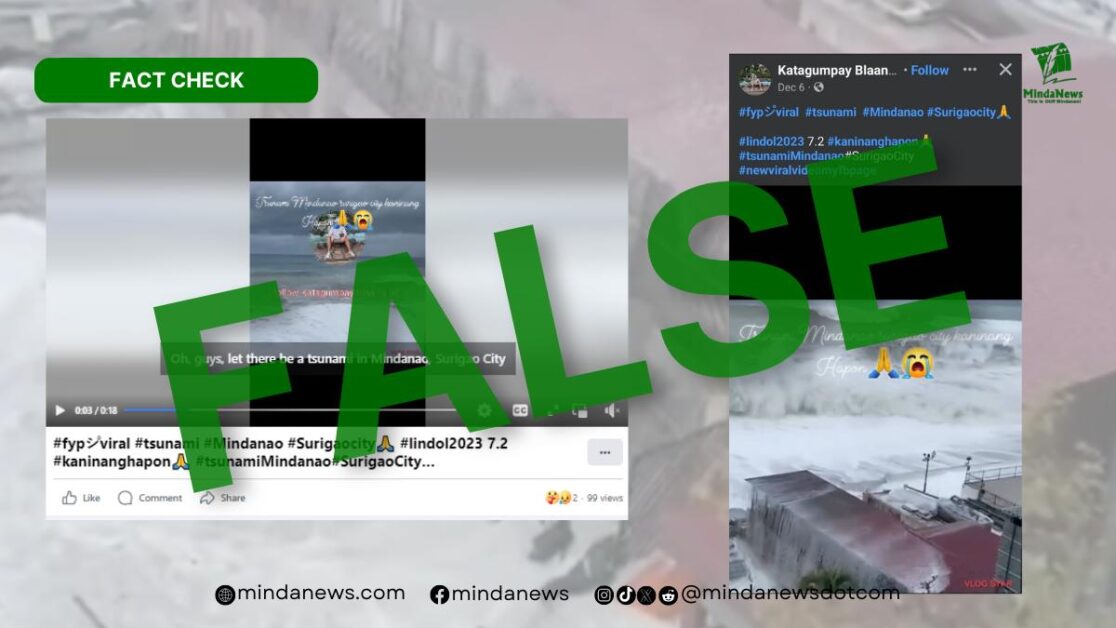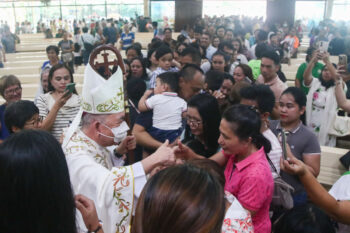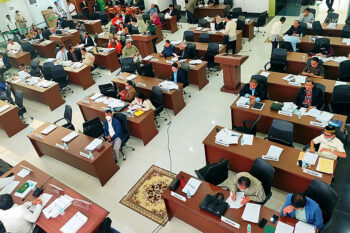A post on the Facebook page of Katagumpay Blaan Vlog falsely claimed that a tsunami hit Surigao City on December 6, 2023 following a Magnitude 7.2 earthquake. The false information was accompanied by a video of huge waves hitting structures by the sea.

Katagumpay Blaan Vlog had 1,600 followers as of December 15, 2023.
The video was actually that of an extreme storm that wreaked havoc in Gagra, Georgia on December 6.
According to data from the Philippine Institute of Volcanology and Seismology (Phivolcs), no Magnitude 7.2 earthquake occurred in Surigao City or anywhere in Mindanao and the entire country on December 6. No tsunami occurred either.
On that day, the strongest tremors had a magnitude of 5.1, and was recorded in Cagwait and in Hinatuan, both in Surigao del Sur.
A few days earlier, on December 2, a Magnitude 7.4 earthquake of tectonic origin struck 29 kilometers northeast of Hinatuan.
Phivolcs issued a tsunami alert after the earthquake but lifted it early morning of December 3, allowing the residents of Hinatuan and other areas along Mindanao’s eastern seaboard to return to their homes.
The tsunami warning, which was forecast to generate at least one meter of waves along the coasts of Surigao del Sur and Davao Oriental, was lifted at around 3:23 a.m. on Sunday.
Phivolcs reported that tsunami-related wave heights were recorded but they were less than a meter – 0.64 meters in Mawes Island, Hinatuan, 0.18 meters in Lawigan, Bislig City, 0.05 meters in the Port of Dapa, Surigao del Norte, and 0.08 meters in Mati, Davao Oriental.
“The last recorded tsunami wave arrival in the Philippines occurred at 02:52 AM (PST) at Hinatuan-Bislig Bay Station on Mawes Island. This means that the tsunami threat associated with this earthquake has now largely passed the Philippines,” Phivolcs said.
The agency did not issue another tsunami alert, although it recorded three above Magnitude 6 earthquakes on December 3. It said the three tremors were among the hundreds of aftershocks that followed the Magnitude 7.4 quake on December 2.
As with all our other reports, MindaNews welcomes leads or suggestions from the public to potential fact-check stories.
MindaNews is a verified signatory to the Code of Principles of the International Fact-Checking Network. (H. Marcos C. Mordeno with a report from Ian Carl Espinosa / MindaNews)








